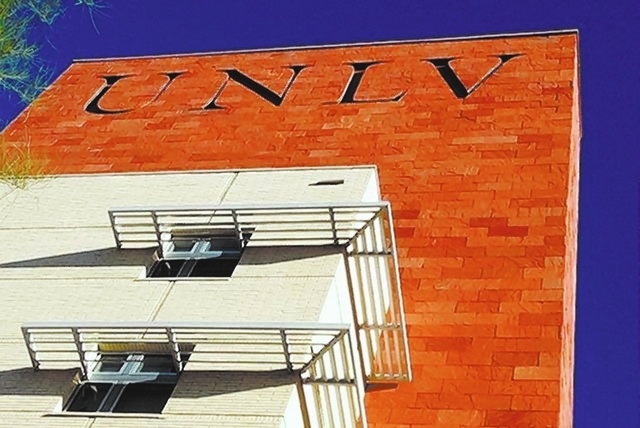Excess credit fee to kick in for slow-to-graduate college students
College students in Nevada who have accumulated excess credits but have failed to complete their degrees will pay the price beginning next fall.
That is when an excess credit fee approved last November by the state’s Board of Regents will go into effect.
“We want them to graduate on time,” Crystal Abba, vice chancellor of academic and student affairs at the Nevada System of Higher Education, said last week.
Students who have accumulated credits equal to 150 percent of the credits required for their program, will face a 50 percent excess credit fee on the per-credit registration.
“Typically, that happens when students keep changing their minds,” Abba said of the credit accumulation.
Students seeking bachelor’s degrees, which typically require about 120 credits, and have accumulated 180 credits and still haven’t graduated, will face the excess credit fee, Abba said.
Resident undergraduate students at the University of Nevada, Las Vegas and the University of Nevada, Reno pay $191.50 per credit.
The excess credit fee would be 50 percent of the $191.50, meaning students would have to pay an additional $95.75 per credit.
Students seeking an associate degree — typically about 60 credits — who have accumulated 90 credits without completing their degrees also will face the excess credit fee.
The community colleges’ upper division credit fee, for students taking advanced coursework, is $138.25. Lower division course are $84.50 per credit.
In the past decade, a number of states have adopted similar policies, Abba said. Some of those states include Texas, Arizona, Utah, North Carolina and Virginia.
“There’s a definite trend for states to adopt these type of policies,” she said.
The new policy on the excess credit fee is also aligned with federal financial aid, Abba said.
“We are reinforcing a message that’s been sent through federal financial aid,” she said.
Institutions have to establish an appeals process to exempt certain credits from the excess credit fee, according to the policy. Credits for remedial courses, credits for college classes taken during high school and credits taken at institutions outside the Nevada System of Higher Education that don’t count toward a student’s program may be excluded from the calculation.
Last year, there were 62 students at UNLV who had earned more than 180 credits, according to Carl Reiber, vice provost for academic affairs at UNLV. But the majority of those students were honors students seeking multiple degrees.
Students with more than 150 credits were contacted to affirm their plan for graduation.
UNLV President Neal Smatresk said many of the students with such an accumulation of credits have special circumstances. But the fee will encourage students to stay on track.
“The fee will primarily be a strong motivator … for the students to graduate in a timely fashion,” he said.
UNR now has 242 students with more than 180 credits, said spokeswoman Jane Tors.
Mark Ciavola, student body president at UNLV, said “enough is enough” with the burden that students see from fee increases. He is especially concerned that tuition could go up for everyone at UNLV, on top of the excess credit fee kicking in next school year.
He said he was told by Smatresk that a 1.5 percent increase in tuition in each of the next five years at UNLV would be likely.
But Smatresk said there are “no plans yet.” Conversations on tuition and fee levels are taking place, but no specific percentages have been brought to the table, he said.
He said those conversations are in the early stages and will move slowly.
“There’s no rush in the conversation,” he said.
Dan Klaich, chancellor for the Nevada System of Higher Education, said the Tuition and Fee Committee is continuing to meet and discuss the current fee levels and whether any increase should be recommended. No decisions have been made, he said.






















